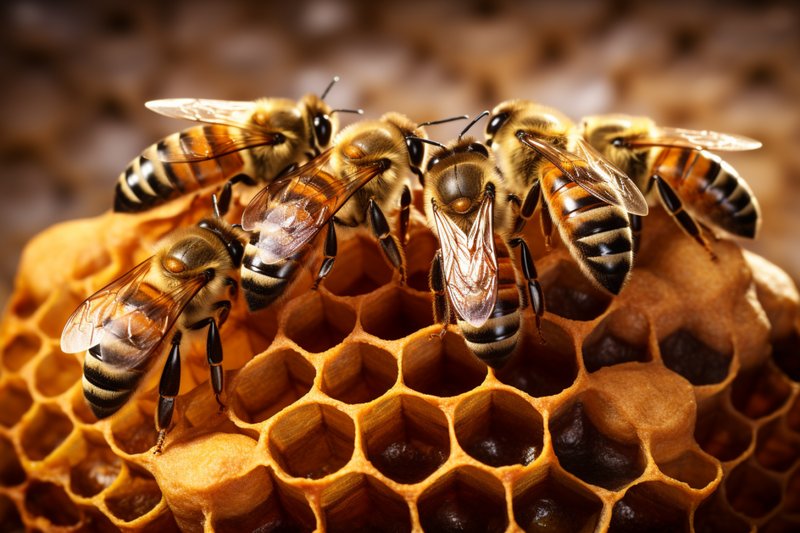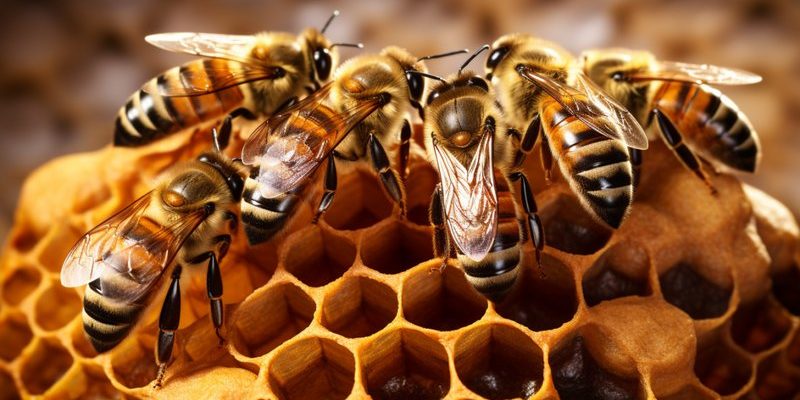
When we look at bees, we see symbols of community, hard work, and even the cycle of life. From ancient Egypt to modern-day art, bees represent various concepts that resonate with our own lives. Just like a remote control that connects us to our favorite shows, the bee connects us to deeper meanings in life. So, let’s explore the cultural symbolism of the bee and discover what these buzzing little insects can teach us.
Bees in Ancient Civilizations
In ancient cultures, bees weren’t simply seen as insects; they were regarded as messengers and symbols of significance. For example, in ancient Egypt, bees were associated with the sun god Ra. They believed that bees were born from the tears of Ra, which gave them divine status. This is a beautiful metaphor for how something as small as a bee can emerge from something as powerful as a sun god. It highlights the idea that life is interconnected, and even the tiniest beings have a divine purpose.
Similarly, the Sumerians viewed bees as a symbol of wisdom and knowledge. They often depicted them in their art, portraying bees as creatures of transformation. This may remind us that just like bees transform nectar into honey, we too can transform our experiences into wisdom. Think about it: our life experiences often shape who we are, much like how bees shape their hive.
The Bee as a Symbol of Community
One of the most striking symbols associated with bees is community. Consider a beehive—a bustling hub of activity where every bee has a role to play. Worker bees gather nectar, while the queen lays eggs, and drones mate with the queen. This collaboration illustrates how important it is to work together. Bees show us that when everyone plays their part, the community thrives.
In many cultures, the bee is used as a metaphor for teamwork and productivity. For instance, in the medieval European tradition, bees represented hard work and diligence. The saying “busy as a bee” captures this essence perfectly. Whenever you see bees buzzing around, it’s a reminder of how effective collaboration can lead to success. It makes you think about your role in your own community or workplace—are you contributing effectively?
Symbolism in Religion and Spirituality
Bees also hold spiritual significance in various religions. In Christianity, bees symbolize resurrection and the cycle of life. This idea stems from the fact that bees produce honey, a sweet and nourishing substance that can sustain life. In this sense, honey becomes a metaphor for spiritual sustenance, reminding us that there’s sweetness in life even during tough times.
Similarly, in Hinduism, bees are often associated with the goddess Durga, who represents strength and protection. Devotees believe that bees are sacred, linking their behavior to devotion and perseverance. When you think about it, just as bees tirelessly work for their hive, people often pour their hearts into their spiritual practices. This connection illustrates the idea that we can derive strength from our beliefs and communities, much like bees do from their hives.
Bees in Art and Literature
Throughout history, bees have also made their mark in art and literature. Artists and writers have drawn upon the symbolism of bees to convey deeper meanings in their works. For instance, in literature, bees often symbolize industry, leadership, and the cycle of life. You might have come across poems where bees are used to illustrate themes of love, loss, or the passage of time—much like how they flit from flower to flower, we too navigate through various stages of life.
One famous example is the poem “To A Bee” by William Wordsworth, where the poet reflects on the beauty and elegance of a bee’s life. Such depictions invite readers to view bees not just as insects but as symbols of harmony and balance in the natural world. They remind us that every creature, regardless of size, plays a role in the grand tapestry of life.
The Bee as a Messenger of Change
Let’s not forget how bees symbolize change and transformation. Their life cycle—from egg to larva to pupa and finally to adult—mirrors our own journeys of growth and development. This transformation can inspire us to embrace change in our own lives. Just as bees adapt to their environment, we can learn to navigate our personal challenges.
In various cultures, the appearance of bees is often seen as a portent of change or news on the horizon. For instance, in folklore, if a bee lands on you, it signifies good luck or an announcement of significant life changes. This belief underscores the idea that bees can serve as reminders to stay attentive to the shifts in our lives and to welcome new opportunities.
The Environmental Symbolism of Bees
In today’s world, bees symbolize more than just culture and tradition; they also carry a crucial environmental message. They play a vital role in pollination, affecting food production and biodiversity. Without bees, many plants—and by extension, animals and humans—would struggle to survive. This highlights the interconnectedness of all living beings.
When you think about it, the decline of bee populations serves as a warning of the health of our planet. It urges us to be more mindful of our environmental impact and to take action in preserving nature. If we treat bees as symbols of ecological balance, we can foster a deeper appreciation for our natural world and our role in protecting it.
The cultural symbolism of bees is a reminder that even the smallest creatures can have profound meanings in our lives. From being symbols of community and hard work to representing spiritual growth and environmental awareness, bees teach us about connection, change, and the cycle of life.
As we navigate through our daily lives, let’s take a moment to appreciate these buzzing little beings and all they represent. Just like the harmony within a hive, we too can find strength in unity and purpose. So next time you see a bee buzzing by, consider the deeper significance it holds—it might just inspire you to reflect on your own journey.

